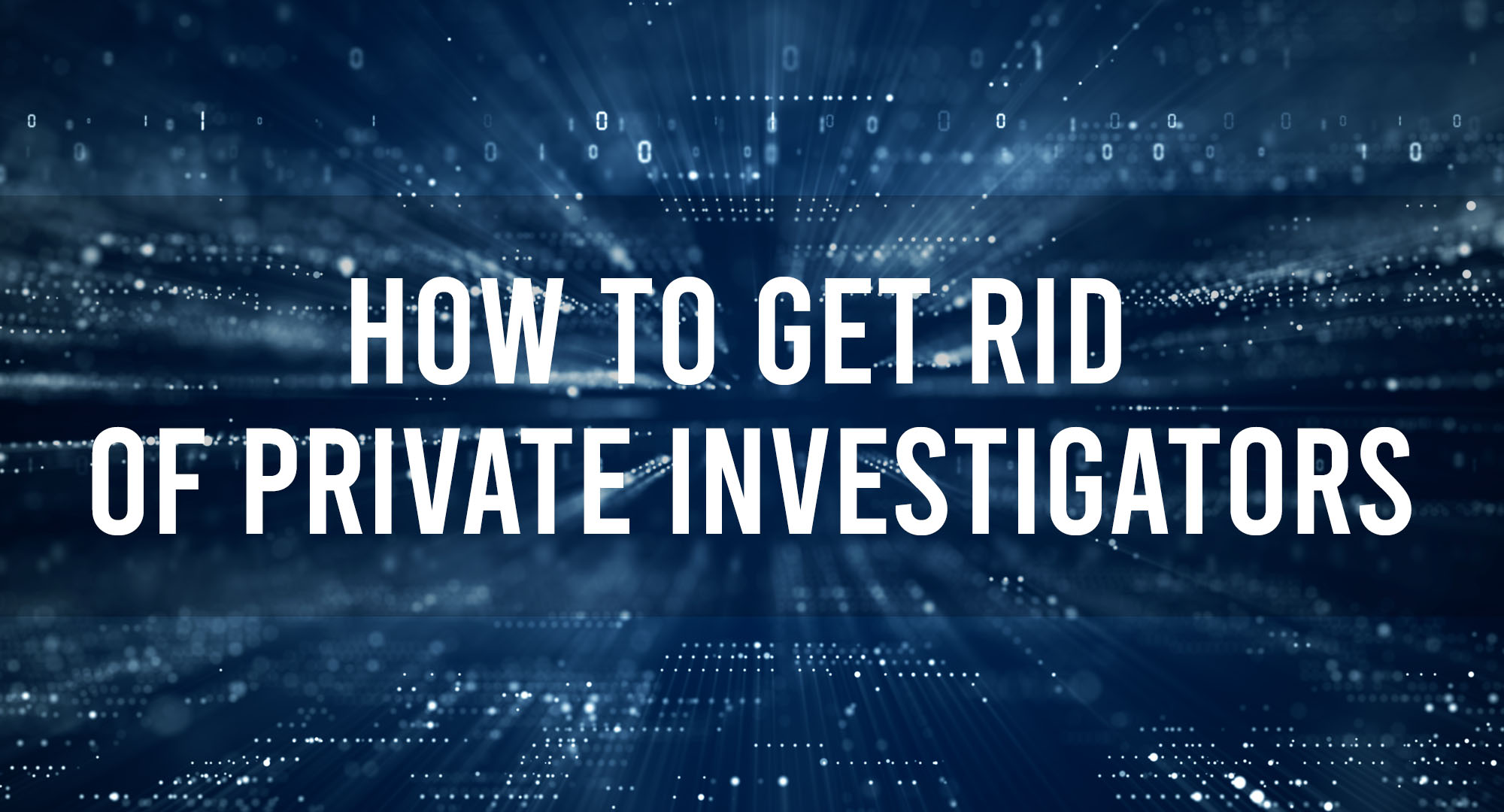The presence of a private investigator can evoke feelings of discomfort, especially when one feels constantly watched or followed. While private investigators operate within certain legal frameworks, everyone deserves their peace of mind and privacy. If you suspect you are under the watchful eye of a private investigator, consider the following steps to address and potentially alleviate the situation.
Understanding the Legal Context
Table of Contents
Private investigators, while integral to many legal processes and personal queries, operate in a sphere that’s enshrouded with misconceptions. They aren’t mysterious entities with free rein; they’re professionals who must adhere to a stringent set of laws and regulations. It’s crucial to understand these boundaries if you ever find yourself on the receiving end of a PI’s attention.
Understanding the rights and boundaries of private investigators:
- Scope of Their Powers: PIs, in essence, are private citizens. They do not possess police powers, which means they cannot make arrests (unless performing a citizen’s arrest), search homes without consent, or tap phones.
- Trespass Laws: One common myth is that private investigators can go anywhere in the pursuit of their objective. The reality is that they can’t trespass onto private property without the owner’s permission, just like any other citizen. Some states or countries even have stricter rules about surveillance in places where a person has a reasonable expectation of privacy.
- Electronic Surveillance: Installing tracking devices or hacking into phones is mostly illegal without the subject’s consent. There are strict laws governing the use of electronic surveillance equipment, and any evidence obtained illegally by a PI is not admissible in court.
- Access to Private Information: Many believe PIs have unlimited access to private databases, financial records, or personal data. However, they can’t access information like bank details, phone records, or sealed court documents unless they have legal reasons and permissions to do so.
Situations in which hiring a private investigator is legal or illegal:
- Legitimate Reasons: There are plenty of valid reasons someone might hire a PI. This can range from a business conducting background checks on potential employees, individuals trying to locate lost relatives or friends, to attorneys seeking evidence for legal cases.
- Harassment and Stalking: It’s illegal to hire a PI for purposes that border on stalking or harassment. If someone commissions a PI for malicious intentions or to cause fear, both the client and the PI can face legal consequences.
- Conflict of Interest: It’s also illegal to hire a PI if there’s a restraining order in place or in situations where there’s a clear conflict of interest, such as during ongoing court battles without proper disclosures.
Communication is Key
While understanding the law is crucial, often the feelings of unease can be alleviated with clear communication.
Approaching the investigator directly: It’s natural to feel wary, but if you’re sure about a PI tailing you and feel safe, a direct conversation can be more clarifying than you might think. By confronting them politely, you can gauge their intentions.
Discussing concerns and asking for credentials: Remember, genuine private investigators have nothing to hide regarding their profession. A legitimate PI will have credentials or a license, depending on jurisdiction. If someone refuses to provide this information, it might be a red flag. Always trust your instincts, and if something feels amiss, it’s best to distance yourself and consider seeking legal or law enforcement advice.
Documenting Suspicious Activities
Being vigilant can be your best defense. If you notice the same individual or vehicle frequently, start documenting these instances.
- The importance of keeping a log of encounters and events: Note down dates, times, locations, and even license plate numbers. This log can be useful if you ever need to involve law enforcement.
- Using technology: Installing security cameras at home or a dash cam in your vehicle can provide concrete evidence of any suspicious activities.
Increase Personal Security:
Your safety is paramount. Adopt measures to safeguard yourself both online and offline.
- Adjusting daily routines to be unpredictable: Vary the routes you take, the times you leave and return home, and even the places you frequent.
- Taking precautions with personal data online: Ensure your social media accounts are private, be cautious about sharing your location online, and regularly update passwords.
- Using tools and tech to ensure privacy: Invest in good quality home security systems and privacy tools for your online activities.
Navigating the complexities surrounding private investigations can be daunting. This is where the expertise of legal professionals comes into play. If you suspect an infringement upon your rights, a consultation can be invaluable.
When and why you should consult with a lawyer:
- Clarification of Rights: Understanding your rights in the context of private investigations is essential. A legal expert can elucidate on what a PI can and cannot do, offering clarity and peace of mind.
- Assessment of the Situation: A lawyer can help you determine whether you have a legitimate concern or if the investigator is working within their legal boundaries. They can analyze the evidence, such as the logs and videos you might have compiled.
- Guidance on Action Steps: If you’re unsure about the next steps, an attorney can guide you on the best course of action, be it reaching out to the investigator, documenting further, or directly addressing the person who hired the PI.
Possible legal actions if your privacy is being invaded unlawfully:
- Cease and Desist Orders: Before moving to more severe measures, a cease and desist letter can be an effective tool. This legal document can demand the investigator stop their intrusive actions or face potential legal consequences.
- Restraining Orders: In more extreme cases where there’s evidence of harassment or threats to your safety, a lawyer can help you apply for a restraining order, forcing the PI to keep a certain distance from you.
- Civil Litigation: If you’ve suffered damages or harm due to an investigator’s actions, a lawsuit may be an option to seek compensation.
Involve Law Enforcement
When personal safety is at stake or when there’s a potential breach of the law, it’s vital to loop in the appropriate authorities.
Reporting stalking or harassment:
- Documentation: Before approaching law enforcement, ensure you have a record of incidents, which can be in the form of dates, descriptions, photographs, or videos.
- Filing a Report: Visit your local police station or precinct to file an official report. Be as detailed as possible and present any evidence you have.
- Protection Measures: Depending on the gravity of the situation, law enforcement can offer protection or additional safety recommendations.
Understanding the difference between law enforcement surveillance and private investigations:
- Bound by Law: While both PIs and law enforcement can conduct surveillance, police operations are generally more strictly regulated. They might require warrants or have to justify their reasons for surveillance to a higher authority.
- Intent and Outcome: Police typically conduct surveillance in relation to suspected criminal activities. On the other hand, private investigations cover a broader range of motives, from personal to corporate interests.
- Duration and Intensity: Police surveillance, given its ties to potential criminal activity, may be more short-lived and intense. Private investigations might stretch over longer periods, depending on the client’s requirements and budget.
If ever in doubt about who might be watching or following you, always prioritize your safety. Whether it’s seeking legal counsel or involving the police, proactive steps can provide clarity, protection, and peace of mind.
Addressing Underlying Causes:
Sometimes, understanding the root of the issue can be the most effective way to address it.
- Assessing reasons someone might hire an investigator against you: Are there unresolved personal disputes, debts, or business disagreements that might be the cause?
- Mediation or confronting underlying issues with parties involved: Addressing these directly, possibly with the help of a mediator, might eliminate the need for a private investigator in the first place.
Conclusion
In conclusion, while the idea of being watched by a private investigator can be unnerving, knowing your rights and available courses of action can empower you to take charge of the situation. Always prioritize your safety and act within the boundaries of the law. If in doubt, seeking legal advice or the assistance of law enforcement can provide additional support and clarity.

Timothy is a tech enthusiast and has been working in the industry for the past 10 years. He has a vast knowledge when comes to technology and likes to help people with this knowledge.
